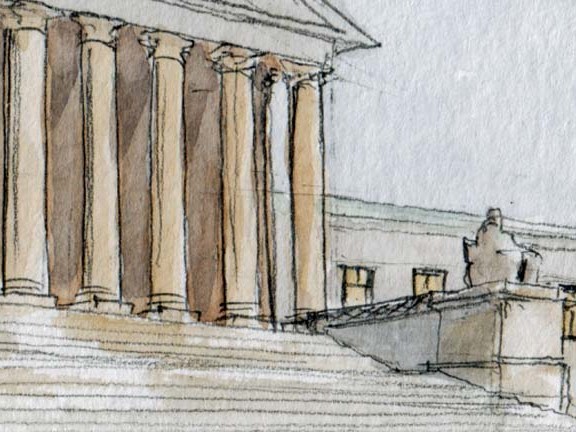Monday round-up

This morning the Supreme Court will hear the first oral arguments of 2020 in two cases. First up is Lucky Brand Dungarees v. Marcel Fashions Group, which asks whether, when a plaintiff asserts new claims, a defendant can raise defenses that were not actually litigated and resolved in any prior cases between the parties. Megan La Belle previewed the case for this blog. Philip Duggan and Robert Reese Oñate have a preview at Cornell Law School’s Legal Information Institute.
Today’s second case is Thole v. U.S. Bank, in which the justices will consider whether a participant in a defined-benefit pension fund that meets minimum-funding criteria can sue the fund managers when he has not actually suffered any financial injury. This blog’s preview came from Dana Muir. Basem Besada and Brandon Slotkin previewed the case for Cornell.
At the ABA Journal, Mark Walsh previews one of tomorrow’s cases, Kelly v. United States, which stems from the “Bridgegate” controversy in New Jersey and involves the extent to which federal fraud statutes cover the politically motivated acts of public officials. At USA Today, Richard Wolf reports that recently, “the high court has [often] admonished prosecutors for stretching laws to win convictions”: “On Tuesday, [it] will shed some light on whether its forgiveness extends to shutting down access lanes to the George Washington Bridge – the busiest bridge in the world – for political retribution.” Additional coverage comes from David Porter at AP and Ephrat Livni at Quartz.
On Friday, the justices added three cases to their merits docket for the term. Amy Howe covers the grants for this blog, in a post that first appeared at Howe on the Court. At Bloomberg Law, Jon Reid and Sara Merken report that the court “agreed to review a ruling that a federal robocall law exemption letting companies collect government-backed debt is unconstitutional.”
Briefly:
- At The Dispatch, Sarah Isgur considers whom the president might nominate to the Supreme Court before the next election “if Justice Ruth Bader Ginsburg, 86 years old, or Justice Stephen Breyer, 81 years old, were to leave the court unexpectedly.”
- At the Reproductive Rights Law Prof Blog, Cynthia Soohoo explains why the court should decline last week’s invitation in an amicus brief signed by “over 200 federal lawmakers … to overrule its 1973 case Roe v. Wade,which recognized woman’s fundamental right to access abortion.”
- At Jost on Justice, Kenneth Jost looks at two pending petitions in which “[f]aithless electors from two states, Colorado and Washington, are hoping the Court will rule that states have no power to penalize them for voting contrary to their pledges to vote according to the popular vote in their states.”
We rely on our readers to send us links for our round-up. If you have or know of a recent (published in the last two or three days) article, post, podcast or op-ed relating to the Supreme Court that you’d like us to consider for inclusion in the round-up, please send it to roundup [at] scotusblog.com. Thank you!
Posted in Round-up
